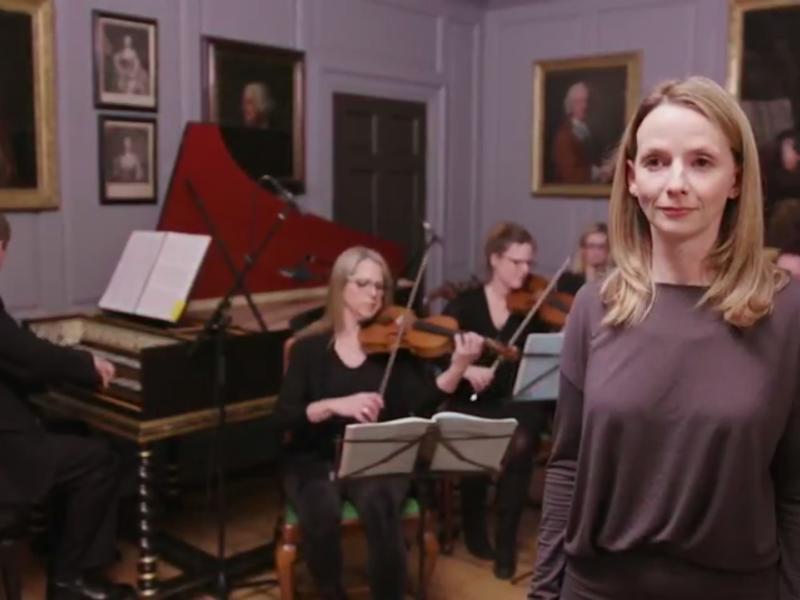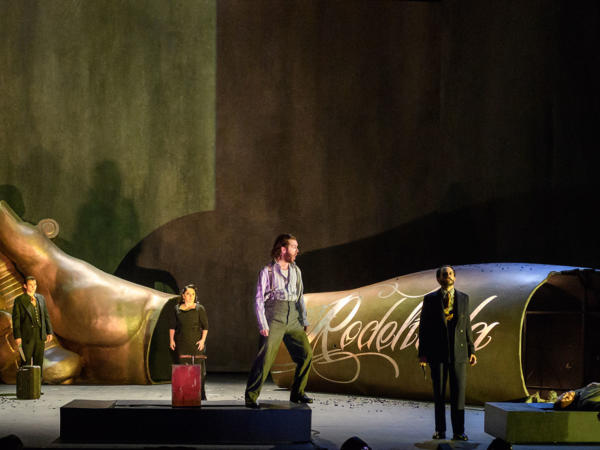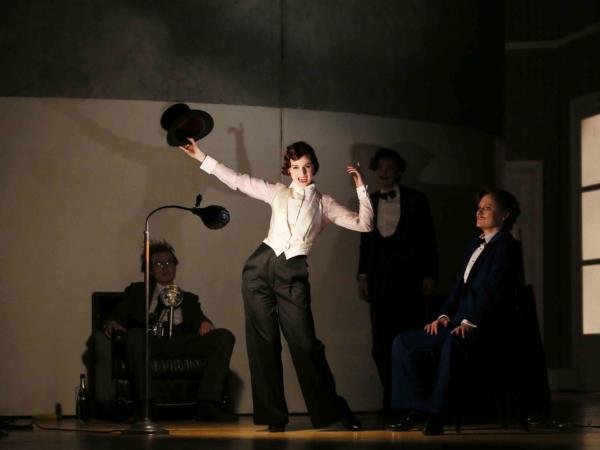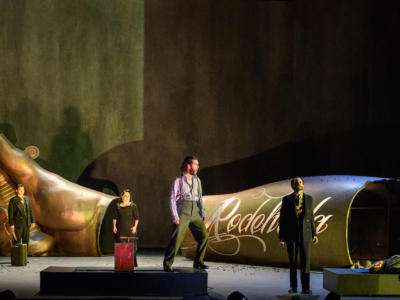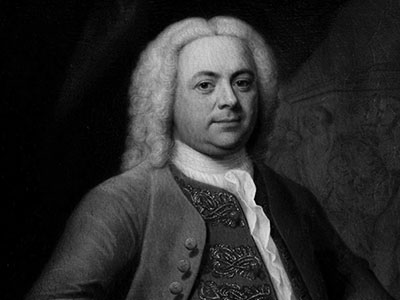
George Frideric Handel
(born Halle 23 February 1685; died London 14 April 1759)
Welcome to a comprehensive guide on the life and works of the prolific Baroque composer, George Frideric Handel. This guide aims to illuminate the extraordinary journey of George Handel, born in 1685 in Germany, and trace the evolution of his illustrious career. Delve into the depths of Handel’s musical genius as we explore the diverse realms of his compositions, from the grandeur of his operas like Giulio Cesare to the majesty of his oratorios, epitomized by the timeless masterpiece, Messiah.
Embark on a journey through Handel’s life, discovering the influences that shaped his distinctive style and the historical context that surrounded his creative endeavours. Explore the nuances of Handel’s compositions, gaining insights into the genius behind the music that continues to captivate audiences worldwide. This guide is your key to unlocking the rich tapestry of George Handel’s legacy, providing a deeper understanding of his contributions to classical music.
The life of Handel: A summary
Discover more about George Handel’s life and career in this guide, which includes education and influences, background, career and key accomplishments. It will also cover his best known works, along with his music in action.
Early life and education
George Frideric Handel was born on February 23, 1685, in Halle, Saxony (now part of Germany). His father, Georg Händel, was a distinguished barber-surgeon, and his mother, Dorothea Taust, recognized her son’s musical talent early on. Young Handel’s exposure to music began at home, where he explored the harpsichord and organ.
Handel’s formal musical education began at the Lateinschule in Halle, where he studied language, literature, and music. Despite his father’s objections to a musical career, Handel’s passion for the art form led him to secretly practice and compose. In 1702, Handel moved to Hamburg, a thriving musical centre, where he performed in the opera orchestra and composed his first operas.
Key influences during Handel’s formative years include his exposure to Italian opera during travels to Italy and his encounters with notable musicians like Arcangelo Corelli. His achievements in Italy solidified his reputation, leading to his appointment as Kapellmeister to the Elector of Hanover.
In 1710, Handel moved to London, where he found immense success as a composer and performer. His Water Music and Music for the Royal Fireworks are iconic works from this period. Notably, in 1713, he received a royal appointment as Composer of Musick to the Chapel Royal.
George Frideric Handel’s childhood and early years laid the foundation for a remarkable career marked by innovation and mastery, with his education, familial support, and exposure to diverse musical influences shaping the trajectory of one of the Baroque era’s most celebrated composers.
Career highlights
In 1706, Handel travelled to Italy, where he absorbed Italian musical styles and worked with prominent musicians. He composed numerous operas, oratorios, and other vocal and instrumental works during his time in Italy. Handel spent several years working in Germany before moving to London in 1712. He quickly gained recognition for his operas and instrumental compositions. His success in London led to the royal patronage of the future King George II. Handel composed Zadok the Priest in 1727 as part of the coronation anthem he wrote for the coronation ceremony of King George.. The anthem, known as the Coronation Anthems, consists of four parts: Zadok the Priest, Let Thy Hand Be Strengthened, The King Shall Rejoice, and My Heart Is Inditing. These anthems were performed during the coronation ceremony at Westminster Abbey on October 11, 1727. Zadok the Priest is perhaps the most famous and frequently performed of the four anthems and is known for its majestic and celebratory character.
Handel became a leading opera composer in London, with works like Rinaldo, Giulio Cesare, and Alcina enjoying immense popularity. However, changing tastes and financial challenges in the opera scene led him to shift his focus. Handel found success in oratorios, large-scale choral works with a biblical or religious theme. His most famous oratorio, Messiah, composed in 1741, is a masterpiece that continues to be widely performed and celebrated. In the latter part of his career, Handel’s health declined, but he continued to compose. His later works, such as Theodora and Jephtha, demonstrated a mature and reflective style. Despite financial difficulties, he remained influential and respected in the London musical scene.
Later life
In the later years of George Frideric Handel’s life, he continued to compose prolifically despite facing various challenges, including declining health and financial difficulties. Handel’s focus shifted towards oratorios in his later years. Notable works include Belshazzar (1744), Jephtha (1751), and Theodora (1750). These compositions showcased a more reflective and mature style, exploring complex characterizations and moral themes.
While the popularity of Italian opera waned in London, Handel continued to compose operas such as Deidamia (1741). However, financial challenges in the opera scene prompted him to explore other genres. Handel composed a series of organ concertos and other instrumental works, contributing to the development of the concerto grosso form.
Handel’s health began to deteriorate in the 1730s, and he experienced vision problems. Despite these challenges, he remained dedicated to his musical pursuits. He also faced financial difficulties, exacerbated by the decline in popularity of Italian opera. However, he managed to overcome these challenges through the success of his oratorios.
George Frideric Handel passed away on April 14, 1759, at the age of 74. He was buried in Westminster Abbey, and his funeral was attended by a large gathering, reflecting his esteemed position in the musical world. Handel’s legacy is immense, and he is celebrated as one of the greatest composers of the Baroque era. His works, including the iconic Messiah, continue to be performed globally. His influence extends beyond his compositions; he played a crucial role in shaping the English oratorio tradition and contributed significantly to the development of Baroque music.
Handel’s melodic richness, dramatic flair, and mastery of choral writing left an indelible mark on Western classical music. His contributions to opera, oratorio, and instrumental music have earned him a lasting place in the canon of classical composers. Handel’s works are cherished for their emotional depth, structural innovation, and enduring appeal.
Handel’s musical style and influence
George Frideric Handel’s musical style is characterised by its grandeur, emotional depth, and melodic richness. His works span a wide range of genres, including opera, oratorio, choral music, and instrumental compositions. Here are key aspects of Handel’s musical style and his lasting influence on music:
- Dramatic Expression: Handel was a master of dramatic expression, particularly evident in his operas and oratorios. His ability to convey intense emotions through music, whether in the form of arias, choruses, or instrumental passages, is a hallmark of his style. The emotional range in his compositions, from jubilant and triumphant to melancholic and introspective, showcases his versatility.
- Choral Writing: Handel’s choral writing is celebrated for its brilliance and power. He skilfully employed choral forces to convey both textual and emotional depth. The famous “Hallelujah” chorus from “Messiah” is a prime example of Handel’s mastery in creating majestic and impactful choral works.
- Melodic Invention: Handel was a gifted melodist, creating memorable and expressive melodies that have stood the test of time. His ability to craft compelling and singable tunes contributed to the widespread popularity of his works. The beauty and accessibility of his melodies are evident not only in vocal pieces but also in his instrumental compositions.
- Harmonic Language: Handel’s harmonic language is characterized by its richness and sophistication. He skilfully navigated through a variety of harmonic progressions, creating harmonic interest and tension. His use of harmony contributes to the emotional depth of his compositions.
- Baroque Style: Handel was a prominent figure in the Baroque era, and his music reflects the stylistic elements of the time. Ornamentation, elaborate melodic lines, and the use of basso continuo (a bass line accompanied by a keyboard instrument and a low melodic instrument) are typical features of Baroque music that are prevalent in Handel’s works.
Handel’s early years in Germany and his travels to Italy exposed him to various musical styles. Italian opera, in particular, left a significant imprint on his work. Handel also integrated elements of French and German music into his compositions, showcasing a cosmopolitan approach to musical styles. Handel’s impact on Western classical music is profound. His oratorios, especially Messiah, remain popular and are performed globally. Handel’s influence is seen in the works of later composers, including Mozart and Beethoven, who admired his dramatic flair and mastery of choral writing. Additionally, Handel’s contributions to the oratorio genre laid the groundwork for the development of English oratorio traditions. Handel’s compositions are still widely performed and studied today. His influence can be heard in the works of composers across various genres. The choral and orchestral techniques he employed continue to be essential elements in classical and choral music.
Handel’s most famous songs
George Frideric Handel composed a vast and impressive body of work, including operas, oratorios, instrumental compositions, and more. Some of his most famous and widely recognized pieces include:
- Messiah (1741): This oratorio is one of Handel’s most famous and enduring works. The Hallelujah chorus, in particular, is widely recognized and frequently performed, especially during the Christmas season.
- Water Music (1717): Comprising three suites, Water Music is a collection of orchestral music that Handel composed for a royal boating party on the River Thames. The suites include lively dance movements and are well-known for their elegant and festive character.
- Music for the Royal Fireworks (1749): This orchestral suite was composed to celebrate the end of the War of the Austrian Succession. The piece includes festive and grandiose movements and is often performed at celebratory events.
- Zadok the Priest (1727): This coronation anthem was composed for the coronation ceremony of King George II. The opening chorus is especially famous and has been used in various ceremonial contexts.
- Lascia ch’io pianga from Rinaldo (1711): This aria, sung by the character Almirena in Handel’s opera Rinaldo, is one of his most beautiful and moving compositions.
- Ombra mai fu from Serse (1738): This aria, also known as Handel’s Largo, is sung by the character Xerxes to a plane tree. It is celebrated for its lyrical beauty.
- Giulio Cesare in Egitto (1724): This opera is notable for its arias, including Cleopatra’s Piangerò la sorte mia and Cesare’s Va tacito e nascosto.
- Sarabande from Suite in D minor (HWV 437): This solo keyboard piece is part of Handel’s keyboard suites and is particularly famous for its stately and expressive character.
Find out more about Handel’s operas that have been performed by ENO, as well as operas by other famous composers on our Discover Opera page
Handel’s music in action
Handel’s most famous operas
- Rinaldo (1711)
- Giulio Cesare (Julius Caesar) (1724)
- Tamerlano (1724)
- Serse (Xerxes) (1738)
- Alcina (1735)
- Orlando (1733)
- Ariodante (1735)
- Agrippina (1709)
FAQs
Where was George Frideric Handel born?
George Frideric Handel was born in Halle, Duchy of Magdeburg (now part of modern-day Germany), on February 23, 1685.
Who is George Frideric Handel?
George Frideric Handel was a German-born composer of the Baroque era who later became a naturalized British citizen. He is widely regarded as one of the greatest composers in the history of Western classical music. Handel’s works encompass a variety of genres, including opera, oratorio, chamber music, orchestral compositions, and keyboard music.
Did George Frideric Handel have a wife?
George Frideric Handel never married. Throughout his life, there is no evidence to suggest that he entered into matrimony or had a spouse. Handel was known for his dedication to his musical career, and he spent much of his life composing and performing, particularly during his time in London.
How did George Frideric Handel die?
George Frideric Handel passed away on April 14, 1759, at the age of 74. He died in London, England. The cause of his death was attributed to advanced arteriosclerosis (a condition involving the hardening and narrowing of the arteries) and possibly a stroke.
What instruments did George Frideric Handel play?
George Frideric Handel was primarily a composer and conductor, and there is no historical evidence to suggest that he played any musical instruments as part of his professional activities. While he did not play instruments in public performances, he was a skilled keyboard player. It is likely that he played the harpsichord or organ when composing and rehearsing his works.


